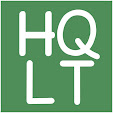아빠: 조이! 방학 계획은 어떻게 세웠니?
Dad: Joy! What is your plan for the vacation?
조이: 이번 방학에는 한국어 공부도 하고 봉사활동도 해 보려고 해요.
Joy: I am thinking of studying Korean and doing some volunteer work during the break.
아빠: 어디에서 봉사활동을 할지 알아보았니?
Dad: Did you find place to go volunteering?
조이: 형하고 몇 군데 가보기는 했는데 아직 결정은 못 했어요.
Joy: I visited a few places with Danny, but I haven’t decided yet.
엄마: 지난번 성당 모임에 갔을 때 들었는데 7월부터 교포를 위한 한국어 특별 수업을 시
작한다던데…….
Mom: I heard this from my last catholic church meeting that they will start a special Korean class for Korean Americans from July.
조이: 그래요? 저는 처음 들어요. 어떤 거예요?
Joy: Will they? I hear it for the first time. What is it?
엄마: 한인 협회 홈페이지에 자세한 내용을 올려놓는다고 했어.
Mom: People say that they will post details on Korean association homepage.
조이: 네. 제가 직접 알아볼게요.
Joy: Ok. I will look for the information myself.
아빠: 혹시 한인 협회에서 봉사할 생각은 없어? 한인 협회 체육대회를 도와줄 사람들이 필요하다고 하던데…….
Dad: How about volunteering for Korean association? I heard that they need people to help with the Sports Day of the Korean association.
조이: 좋아요. 제 친구도 작년 여름에 거기서 일했는데 재미있었대요.
Joy: Sounds good. My friend worked there last summer and he said it was fun.
어휘 학습
1. 결정: 을/를 결정하다, -이/가 결정하다, -을/를 결심하다
교사 길라잡이1. 군데: 의존명사로 낱낱의 장소를 셀 때 사용한다.
예) 음식을 여러 군데로 나누어 담아라
한 두 군데가 아니다.2. –다던데: 어미 ‘-다던데’는 과거 누군가에게서 들은 내용을 회상할 때 사용한다.
예) 내일부터 비가 온다던데 우산을 가지고 가세요.
김 선생님 동생이 미국 사람이라던데 정말이에요?3. 직접 : ‘부사’로 ‘중간에 아무 것도 개입시키지 않고 바로’라는 의미를 가진다.
예) 이 음식은 내가 직접 만들었어요.
학생에 따라 ‘직접’, ‘바로’, ‘혼자’의 의미를 혼돈하는 경우가 있으므로 구별하여 가르친다.
예) 이 음식은 바로 만들어서 먹어야 해요.
이 음식을 혼자 만들었어요.
이 음식은 직접 만들었어요.
Notes조이!( Joy)
방학 계획은: 방학 계획(plan for the vacation)+-은(marker(exclusion))
어떻게(how)
세웠니?: 세우(다)(to make)+-었-(pre-ending(past tense))+-니(ending(pain style: interrogative))
이번 방학에는: 이번 방학(the break)+-에(marker(during)+-는(marker(exclusion))
한국어 공부도 하고: 한국어 공부(Korean)+-도(marker(also))+하(다)(to study)+-고(connective
; and)
봉사활동도 해 보려고 해요: 봉사활동(some volunteer work)+-도marker (also)+하(다)(to do)+
-여 보(다)(modal aux.(to try to do))+-려고 하(다)(modal aux.(to plan to))+-여요 (ending(polite))
어디에서(where)
봉사활동을: 봉사활동(volunteering)+-을(objective marker)
할지: 하(다)(to do)+-ㄹ지(connective; to guess)
알아보았니?: 알아보(다)(to find)+-았-(pre-ending(past tense))+-(ending(pain style: interrogative))
형하고: 형(Danny)+-하고(marker(with))
몇 군데(a few place)
가 보기는 했는데: 가(다)(to visit)+-아 보(다)(modal aux.( to try to do))+-기는 하(다)(modal aux.(to stress))+-였-(pre-ending(past tense))+-는데(connective; but)
아직(yet)
결정은 못 했어요: 결정(하다)(to decide)+-은(marker(exclusion))+못(not)+-했-(pre-ending(past tense))+ -어요(ending(polite))
지난번(last)
성당 모임에: 성당 모임(catholic church meeting )+-에(marker(to))
갔을 때: 가(다)(to go)+-았-(pre-ending(past tense))+-을 때(conjunctive; when)
들었는데: 듣(다)(ㄹirregular(to hear))+-었-(pre-ending(past tense))+-는데(connective; to explain
background)
7월부터: 7월(July)+-부터(marker(from))
교포를 위한: 교포(Korean Americans)+-를 위한(for)
한국어 특별 수업을: 한국어 특별 수업(a special Korean class)+-을(objective marker)
시작한다던데: 시작하(다)(to start)+-ㄴ다(quotative(declarative))+-던(pre-ending(retrospective
marker))+-데ending(to explain an occasion which someone saw or experienced in a retrospective way)
그래요?( Will they?)
저는: 저(I)+-는(marker(exclusion))
처음(for the first time)
들어요: 듣(다)(to hear)+-어요(ending(polite))
어떤 거예요? 어떻(다)(ㅎ deleted(what)+ 거(it)+-예요(ending(to be; interrogative))?
한인 협회 홈페이지에: 한인 협회 홈페이지(Korean association homepage)+-에(marker(on))
자세한: 자세하(다)(to detail)+-ㄴ(ending(relative clause; noun modifying))
내용을: 내용+-을(objective marker)
올려놓는다고 했어: 올려놓(다)(to post on)+-는다고 하(다)(quotative(declarative))+-했-(pre ending(past tense))+-어(ending(pain style: declarative))
네(yes)
제가: 제(I)+-가(subjective marker)
직접(myself)
알아볼게요: 알아보(다)(to look for)+-ㄹ게요(modal aux.(will))
한인 협회에서: 한인 협회(Korean association)+-에서(marker(for))
봉사할 생각은 없어?: 봉사하(다)(to volunteer)+-ㄹ 생각이 있(다)/없(다)(modal aux.(to express a plan))+-어(ending(pain style: interrogative))?
한인 협회 체육대회를: 한인 협회 체육대회(the Sports Day of the Korean association)+-를(objective marker)
도와줄: 도와주(다)( to help)+-ㄹ(ending (relative clause; noun modifying))
사람들이: 사람(people)+들(plural)+-이(subjective marker)
필요하다고 하던데: 필요하(다)(to need)+-다고 하(다)(quotative(declarative))+-던(pre-ending (retr
ospective marker))+-데(ending(to explain an occasion which someone saw or experienced in a
retrospective way))
좋아요(Sounds good)
제 친구도: 제(my)+ 친구(friend)+-도(marker(also))
작년 여름에: 작년 여름(last summer)+-에(marker(in))
거기서(there)
일했는데: 일하(다)(to work)+-했-(pre-ending(past tense))+-는데(connective: to explain background)
재미있었대요: 재미있(다)(to be fun)+-었-(pre-ending(past tense))+-대요(quotative (declarative; contracted form))
To study further Korean conversations: click here









0 Comment: